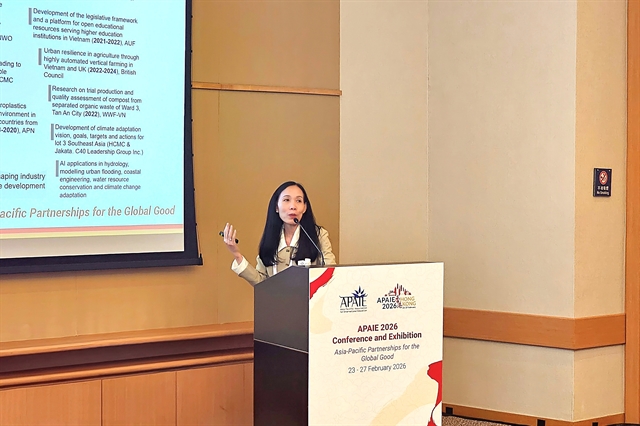 Media-OutReach Newswire
Media-OutReach Newswire



| Time | Programme | Speaker |
| 09:00 | Keynote | Prof Lo Chung-mau, BBS, JP Secretary for Health Hong Kong SAR Government, Hong Kong, China |
| 09:15 | Opening Ceremony | |
| Panel 1 | Session Chairperson: | Dr Ronald Lam, JP Director of Health Hong Kong SAR Government, Hong Kong, China |
| 09:30 | Developing Rare Disease Models in China: Service, Teaching and Research | Prof Zhang Shuyang President Peking Union Medical College Hospital, China |
| 10:00 | Unraveling Molecular Pathogeneses to Enhance Patient Care and Family Well-being | Prof Kym Boycott Co-Chair Lancet Commission on Rare Diseases Professor of Pediatrics University of Ottawa, Canada |
| 10:30 | Panel Discussion | |
| Panel 2 | Session Chairperson: | Dr Libby Lee, JP Under Secretary for Health Hong Kong SAR Government, Hong Kong, China |
| 11:15 | Insights into Rare Diseases: Focus on Inborn Errors of Metabolism | Prof Roberto Giugliani Co-Chair Lancet Commission on Rare Diseases Professor of Genetics Federal University of Rio Grande do Sul, Brazil |
| 11:45 | Hong Kong Genome Project Case Sharing (1) – Unlocking the Genomics of Cardiomyopathy: A New Era in Heart Health | Dr Derek Lee Hong Kong College of Physicians – Hong Kong Genome Institute Scholar Hong Kong, China |
| 12:00 | Hong Kong Genome Project Case Sharing (2) – Precision Medicine in Nephrology | Dr Becky Ma Hong Kong Academy of Medicine – Hong Kong Genome Institute Scholar Hong Kong, China |
| 12:15 | Panel Discussion | |
| 12:30 | Lunch | |
| Panel 3 | Session Chairperson: | Prof Philip Chiu Dean of Medicine The Chinese University of Hong Kong, Hong Kong, China |
| 14:00 | Revolutionising Plasma DNA Analysis in Transforming Non-invasive Testing and Cancer Detection | Prof Dennis Lo, SBS, JP Vice-Chancellor and President The Chinese University of Hong Kong Board Member Hong Kong Genome Institute Hong Kong, China |
| 14:30 | Publishing at The Lancet | Dr Chloe Wilson Senior Medical Editor The Lancet |
| 15:00 | Panel Discussion | |
| Panel 4 | Session Chairperson: | Prof Lau Chak-sing, BBS, JP Vice-President & Pro-Vice-Chancellor (Health) Dean of Medicine The University of Hong Kong Board Member Hong Kong Genome Institute Hong Kong, China |
| 15:35 | AI in Action: The Journey from Clinical Record to Personalised Treatment | Prof Gareth Baynam Medical Director Rare Care Centre Perth Children's Hospital, Australia |
| 16:05 | Harnessing the Power of Electronic Healthcare Records in Scientific Research and Innovation in Genomic Medicine | Prof Yong Chen Professor of Biostatistics University of Pennsylvania, USA |
| 16:35 | Panel Discussion | |
| Panel 5 | Session Chairperson: | To be confirmed |
| 16:50 | The Health Rights of Children and Genomic Newborn Screening | Prof Bartha Knoppers Director Centre of Genomics and Policy McGill University, Canada |
| 17:20 | Hong Kong Genome Project: Advancing the Genomics Frontier | Dr Brian Chung Chief Medical and Scientific Officer Hong Kong Genome Institute, Hong Kong, China |
| 17:40 | Genomics as a Catalyst for Drug Development in the Greater Bay Area | Prof Aya El Helali Clinical Assistant Professor Department of Clinical Oncology, School of Clinical Medicine, The Li Ka Shing Faculty of Medicine of the University of Hong Kong, Hong Kong, China |
| 18:00 | Panel Discussion | |
| 18:15 | End of Symposium | |
The issuer is solely responsible for the content of this announcement.
The Hong Kong Genome Institute (HKGI), established and wholly owned by the Hong Kong SAR Government, commenced full operations in 2021. With the vision "to avail genomic medicine to all for better health and well-being" and supported by the Health Bureau, HKGI works in close collaboration with the Department of Health, Hospital Authority, medical schools of local universities and other stakeholders to accelerate the development of genomic medicine in Hong Kong along four strategic foci: integrate genomics into medicine, advance research, nurture talents and enhance public genomic literacy.
As the first step towards achieving its vision, HKGI launched the Hong Kong Genome Project (HKGP) in 2021 focusing on diseases and research cohorts that would benefit from whole genome sequencing. They include undiagnosed diseases, hereditary cancers and cases related to genomics and precision health. Being the city's first large-scale genome sequencing project, HKGP serves as a catalyst to benefit patients and their families with more precise diagnosis and personalised treatment. It also aims to establish genome database of the local population, testing infrastructure and talent pool to address the healthcare needs of Hong Kong in the long run.
For more information, please visit

|

|

|




